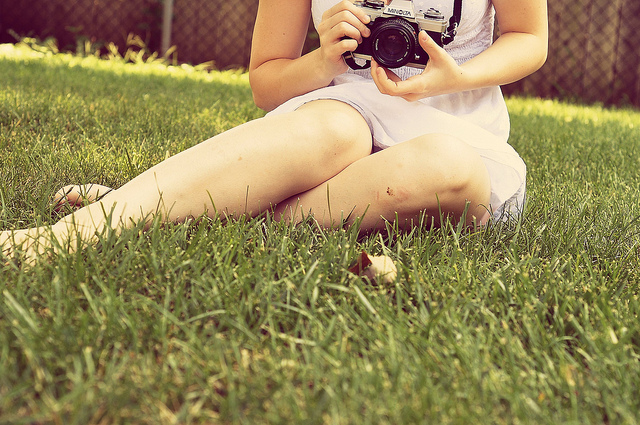Despite the fact that they vary greatly from person to person, all of us have passions in life.
This is true even for those who claim they don’t. They do. They just haven’t found them yet.
Despite being told “Love what you do”; “Go after what inspires you!” and other good pieces of advice, sometimes the hardest part is finding out what exactly lights the fire underneath each of us. (I know, because I am one of those people who for years tried to figure out where my true passions in life lay.)
While there may not be a magical formula for determining that, the tips below have been a great help. Even those of us who have already found our passions may want to take note. As I have discovered, there is always room for new, unexpected ones as we age.
1. Notice the things you are drawn toward.
Often, there is no rhyme or reason as to why we are drawn to something.
For example, for as long as I can remember, I was drawn to photography even though I didn’t have the first clue about it. It never went away. When I was in middle school, I asked my mother for a subscription to Vanity Fair magazine and a “good” camera. (I got the former, but not the latter.) In high school, I applied for yearbook staff because I wanted to be a school photographer. (I didn’t get that either.) It wasn’t until I was in my early 30s that I actually picked up my first SLR camera and took a basic photography class.
Likewise a former co-worker of mine who is now a successful local jeweler designer/instructor shared in a recent interview how she was surfing the web one day and saw some wire-wrapped pendants. As she put it, her “every waking moment was consumed by trying to figure out how they did it”. That obsession did not abate either until she actually learned to do it herself.
The point is, if we are drawn to something, there is probably a good reason, even if we can’t rationally explain it.
2. Find mentors.
Mentors can be a great resource to help us channel our passions. While real, live ones are great, they don’t necessarily have to be either.
For instance, I know several landscape photographers who were inspired by the work of Ansel Adams despite the fact that they were born years after he died.
I know another woman who decided to start a custom clothing line on Etsy and said she was inspired by the memorable and over opinionated designer Edna “E” Mode from the animated film The Incredibles.
3. Invest in the right tools.
When I got serious about learning photography, I realized I was going to need a decent camera if I was ever going to come close to creating the photos I wanted. A point-and-shoot camera or camera phone simply wasn’t going to cut it.
The same was true with yoga. As much as I loved my regular practice, a workshop every now and then allowed me to go deeper in my practice and learn more than I probably ever would had I just stuck with the former.
Likewise, the woman I mentioned above noted that the best thing she ever did was receive a jewelery making DVD complete with all the materials she needed despite the fact that the initial cost of it was $700.
While I would not suggest going into major debt for a passion, sometimes it is worth it to make an investment. (Heck, even financial guru Suze Orman says in her book Young, Fabulous and Broke that it is okay to splurge for things from time-to-time like workshops, etc. if those really are your passion in life.)
4. Stop thinking that passions have to lead to a career or have to earn money.
It’s wonderful when passions can lead to a career and even better when they can lead to fame and fortune but more often, they do not.
For example, the acclaimed street photographer Vivian Maier was a nanny for her entire working life, and her incredible work only came to life after she died and was discovered purely by chance when her negatives were found in a storage locker.
Author Anton Chekhov spent the majority of his life-including most of his literary life-working as a doctor. Indeed, that’s what put bread on the table, and he once remarked, “Medicine is my lawful wife and literature is my mistress.”
However, unlike most literal cases of having a wife and mistress, having the latter may actual translate into greater appreciation of the former: besides covering any financial expenses, having a separate professional identity may allow us to better appreciate and value the time we spend with our passions.
In closing, all of us have passions that can and should be nurtured. While finding them can be a challenge, once we have found them, it can have a positive impact in ways we never imagined.
At the very least, they can bring more happiness into our lives and that is something that nearly all of us could no matter how happy we currently think we are.
Love elephant and want to go steady?
Sign up for our (curated) daily and weekly newsletters!
Editor: Catherine Monkman
Photo: Courtney Carmody/Flickr












Read 2 comments and reply